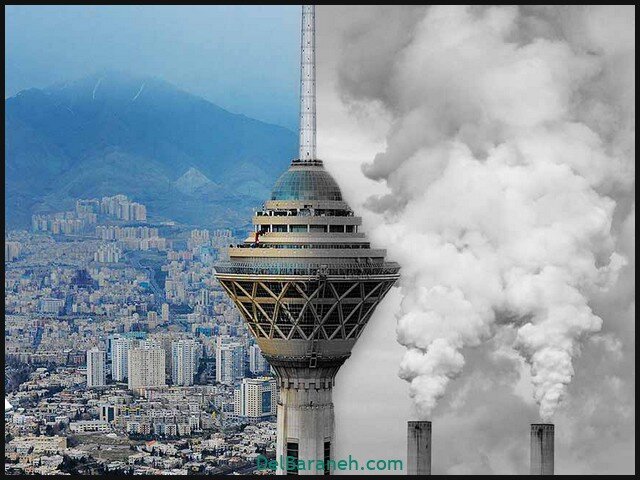Some 40,000 premature deaths occur in Iran due to air pollution

TEHRAN – Air pollution is responsible for around 40,000 premature deaths in Iran annually, Mohammad- Sadeq Hassanvand, head of the air pollution research center at Tehran University of Medical Sciences, has said.
Referring to Iran's cooperation in compiling a new guideline of the World Organization for Air Pollution, he said that according to the findings of the study, the average annual concentration of the most important air pollutant (PM2.5) in the country is almost three times the standard and six times the new WHO guidelines.
The last time the WHO developed a guideline for air pollution was in 2005. A new guideline will be released in the summer of 2021, as new studies on air pollution and its impact on humans have been published, he explained.
“Our national standard for the average annual PM2.5 is 12 micrograms per cubic meter, while it was 10 micrograms per cubic meter, according to 2005 WHO guideline. However, new studies have shown that air pollution can cause serious damage even in less than the standard range, so the new WHO guideline announces the standard as 5 micrograms.”
“We conducted surveys based on sulfur dioxide pollutant data at monitoring stations. This study showed that the number of peak hours of sulfur dioxide concentration over the past year (March 2020-March 2021) compared to a year before in Tehran and other cities of the country have increased significantly,” he lamented.
“Sulfur dioxide increases the risk of developing respiratory diseases such as asthma and asthma attacks. Long-term exposure to it reduces lung capacity in children and impairs the respiratory system. Sulfur dioxide can cause the production of secondary particles. Some of these secondary particles are suspended particles that have the greatest effect on the human body. In addition, studies have shown that they have synergistic effects when sulfur dioxide and particulate matter increase simultaneously, their effects are intensified,” he explained.
Air pollution kills an estimated seven million people worldwide every year. WHO data shows that 9 out of 10 people breathe air that exceeds WHO guideline limits containing high levels of pollutants, with low- and middle-income countries suffering from the highest exposures.
From smog hanging over cities to smoke inside the home, air pollution poses a major threat to health and climate. The combined effects of ambient (outdoor) and household air pollution cause about seven million premature deaths every year, largely as a result of increased mortality from stroke, heart disease, chronic obstructive pulmonary disease, lung cancer, and acute respiratory infections.
Air quality is closely linked to the earth’s climate and ecosystems globally. Many of the drivers of air pollution (i.e. combustion of fossil fuels) are also sources of greenhouse gas emissions. Policies to reduce air pollution, therefore, offer a “win-win” strategy for both climate and health, lowering the burden of disease attributable to air pollution, as well as contributing to the near- and long-term mitigation of climate change.
Over 4,000 deaths in Tehran annually
Between 4,000 and 5,000 people residing in the capital city of Tehran lose their lives per year due to air pollution, according to statistics published by the ministry of health in 2019.
There are numerous vehicular trips per day in Tehran, which are the leading cause of air pollution in the capital so that the air in Tehran is amongst the most polluted in the world, Tehran City Council member, Arash Milani, said.
According to a report by World Bank published in April 2018, Tehran is ranked 12th among 26 megacities in terms of ambient PM10 levels. After Cairo, Tehran is the most polluted non-Asian megacity. In 2016, the annual ambient level of PM10 was estimated at 77 micrograms per cubic meter. This is almost four times the WHO’s recommended threshold of 20 micrograms per cubic meter.
The pandemic has indirectly produced both positive and negative effects on the environment, particularly in terms of air quality; in the city of Tehran, however, air reported even more polluted than it was before the outbreak.
Contrary to expectation, the average concentrations of both the PM2.5 and the PM10 were markedly higher.
FB/MG
